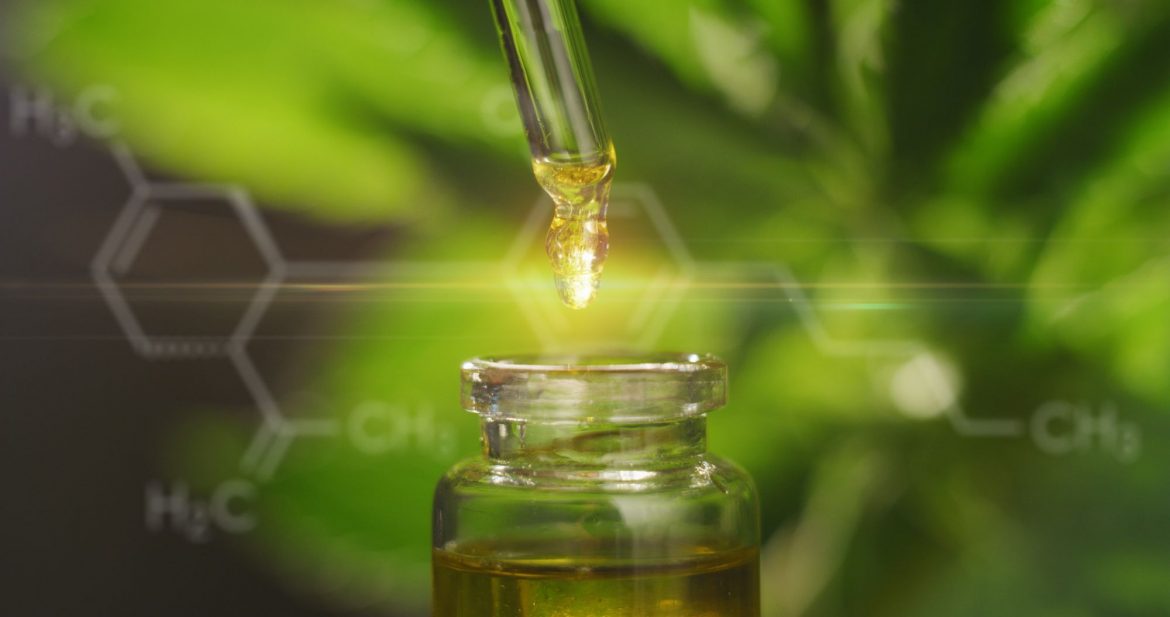Everything You Need to Know About CBD


For many common medical conditions, cannabidiol can be utilized as a natural therapy. One of the most prominent of the more than 100 cannabinoids in the Cannabis sativa plant is CBD.
The primary intoxicating cannabinoid in marijuana is tetrahydrocannabinol (THC), which is responsible for the euphoric high most people associate with marijuana use. The only difference between CBD and THC is that CBD is non-psychoactive. Those looking for pain relief without the mind-altering effects of cannabis or other adverse effects associated with some pharmaceutical medicines will find CBD an attractive choice.
Carrier oil such as coconut or hemp seed oil is used to dilute CBD oil that has been extracted from the cannabis plant. Supplements, drinks, and meals all include CBD, which may be purchased from the online store.
If you’re looking for CBD for sale, vaporizerchief is the best place to shop on the internet.
CBD has gained traction in the health and wellness arena, with some studies showing that it may help alleviate symptoms of illnesses like chronic pain or anxiety. What if you don’t think it’s a good fit for you?
What Exactly is CBD?
CBD, also known as cannabidiol, is a chemical component found in cannabis plants that is both active and naturally occurring.
Marijuana and hemp are the two most common types of the cannabis plant. Marijuana’s primary psychoactive component, tetrahydrocannabinol (THC), is the substance that causes users to feel “high.” On the other hand, CBD is primarily generated from hemp’s flowers, leaves, and stems.
Unlike THC, CBD has no psychotropic effects on its users. In contrast to marijuana’s mind-altering effects, CBD oil provides pain relief and other advantages without any of the side effects.
Hemp is overhyped as a source of CBD oil due to its low THC content and increased CBD concentrations (less than 0.2 percent).
CBD Oil Concentration—Impact on the Endocannabinoid System
Researchers studying the effects of THC on the body found the endocannabinoid (ECS) system, a cell signalling system. The nervous system, metabolism, emotions, and sleep are all controlled by it. As a result, it is critical to maintain the internal environment’s equilibrium, which is referred to as “homeostasis.” CBD for sleep can help you have a better night’s sleep.
Receptors, endocannabinoids, and enzymes are all involved in the ECS’s operation. The endocannabinoids bind to receptors to ensure that internal processes run smoothly. If the body’s system is out of balance, it attaches to a specific receptor on the surface of the skin.
For example, CBDs can alleviate pain by attaching to CB1 receptors in your central nervous system. In addition, enzymes break down the endocannabinoid molecules once they have completed their task.
The research on the effects of CBD oil on the ECS is still in its infancy. Although scientists assume that CBD slows the degradation of endocannabinoid molecules once they have linked to receptors, this has not been scientifically confirmed.
In addition, unlike THC, which binds directly to receptors, CBD does not. Instead, it alters their ability to connect to other cannabinoids by altering their structure. This has a wide range of positive impacts on your body, including boosting your immune system, enhancing your mood, and alleviating pain.
How CBD works
All cannabinoids exert their effects on the body through their interaction with cannabinoid receptors, which are a component of the endocannabinoid system.
A Reliable Source.
The human body creates two types of receptors:
· CB1 receptors are found throughout the body but are especially abundant in the brain. They are responsible for the coordination of movement, emotion, pain, mood, appetite, thinking, memory, and other tasks.
· CB2 receptors are found in greater abundance in the immune system. They have an anti-inflammatory and analgesic effect.
THC binds to CB1 receptors, whereas CBD stimulates the receptors, causing the body to manufacture its own cannabinoids, dubbed endocannabinoids.
Why Use CBD?
The following diseases and conditions may be alleviated or treated with the use of CBD:
· Inflammation and pain
· Seizures
· Anxiety
· Depression
· Nausea
· Migraines
· Psychosis
· Mental health issues
Researchers have uncovered the greatest scientific proof of CBD’s usefulness in treating epilepsy in younger patients. Seizures have been found to be reduced or even eliminated in certain situations by CBD. However, more study is needed in order to establish its effectiveness in treating pain. Studies have shown it to be good in lowering anxiety and insomnia.
Benefits of CBD
We take a look at some medical diseases in which CBD may be beneficial or has already been demonstrated to be so.
1. Epilepsy
As of June 2018, Epidiolex, a plant-based version of CBD, has been approved by the Food and Drug Administration (FDA) to treat seizures in people aged two and older who have Dravet syndrome or Lennox-Gastaut syndrome (LGS).
Additionally, CBD has been tested in the treatment of different kinds of epilepsy that are resistant to traditional treatments. CBD has been shown to reduce seizure frequency by an average of 44 percent in a number of studies.
A decline in liver function has been recorded when CBD is given to persons who are currently receiving valproate, an anti-epileptic medicine.
2. Arthritis
Topical CBD treatments have been shown to be safe and effective in animal tests for arthritic pain and inflammation. Because CBD is poorly absorbed when taken orally and may produce gastrointestinal adverse effects, it is best used topically.
3. Parkinson’s Disease
Several small studies have shown promising outcomes utilising CBD to treat Parkinson’s disease symptoms. As judged by the Parkinson’s Disease Questionnaire, groups treated with CBD 300 mg/day had considerably better well-being and quality of life than those that received a placebo.
4. Anxiety
In a simulated public speaking test, pretreatment with 300mg CBD significantly reduced anxiety in 57 healthy guys. There was no difference in the men’s anxiety levels between 150mg and 600mg of CBD.
In a trial of 400 individuals, 21 of them exhibited anxiety, and CBD had a positive effect on their symptoms.
In a comprehensive case study of 72 patients, 57 individuals (79.2%) reported a drop in their anxiety levels within the first month of treatment with CBD.
5. Depression
The substantial anti-stress impact of CBD after acute or repeated administration has been proven in animal experiments to have some effect on relieving depression.
CBD has been proven to have a favourable effect on the levels of serotonin in the brain and serotonin in animal experiments. Serotonin deficiency has been linked to depression and pain.
6. Sleep disorders
For those suffering from anxiety or non-cancer-related discomfort, 31% of those using CBD reported improved sleep.
However, 48 out of 72 patients (66.7%) reported an improvement in sleep scores within the first month of treatment; these changed throughout time.
CBD appears to sustain sleep architecture in patients with anxiety or depression, indicating that it is unlikely to adversely influence sleep quality.
7. Acne
In addition to its anti-inflammatory effects, a laboratory investigation demonstrated that CBD inhibited the activation of inflammatory cytokines in human sebocytes, avoiding excessive sebum production. It’s possible that topical CBD could be a useful treatment for acne because of the abundant sebum and inflammation that characterise the condition.
8. Vomiting and diarrhoea
Studies looking at whether or not CBD can help alleviate nausea and vomiting have typically employed a mixture of CBD and THC rather than simply CBD alone. The combination was shown to be either more effective as a placebo in a study published in 2016. According to a more recent study, THC appears to be more helpful than CBD at reducing nausea and vomiting.
Other circumstances
CBD has been found to have immunosuppressive and anti-inflammatory characteristics in numerous studies on animals and humans, which may make it a suitable treatment option for various autoimmune disorders or inflammation-related problems.
Multiple sclerosis, drug addiction, and diabetic protection are just a few of the conditions that could benefit from further research into its application.
There are certain potential side effects of CBD, including nausea, sleepiness, and irritability, and it may interfere with some drugs, such as warfarin.
Conclusion
Anxiety and neurological problems are among the many illnesses for which CBD oil has been examined as a possible treatment option. In addition, it may improve heart health and alleviate some types of discomfort.
Be aware that these health advantages are derived from the combination of CBD and THC, not CBD alone. There is still much to learn about the possible uses of CBD, and research into its impact on specific illnesses is underway.
You should first consult a medical expert if you’re considering using CBD to treat a health condition or maintain good health in general. In addition to assisting you in making an informed decision about whether or not CBD should be a part of your daily regimen, they can also assist you in making an informed purchase.
Underground Dispensary
Author: PuffPuffPost Team



